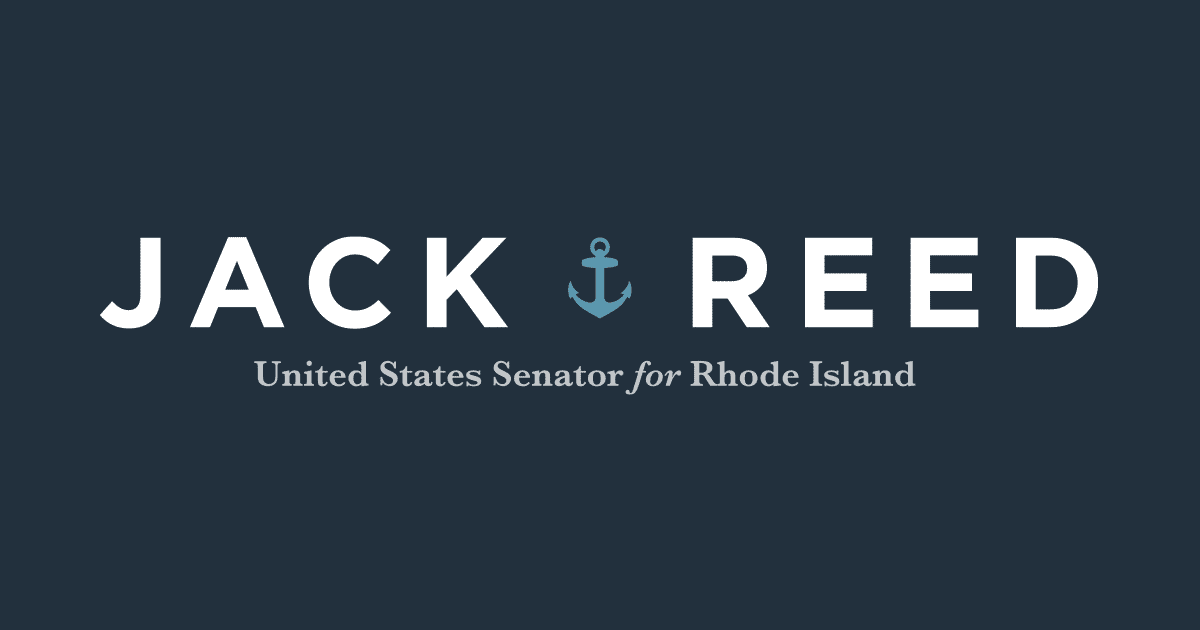Source: United States Senator for Rhode Island Jack Reed
CRANSTON, RI – In an effort to reduce childhood exposure to lead and raise awareness about the threat of lead poisoning, U.S. Senator Jack Reed today joined with CCAP, the U.S. Department of Housing and Urban Development (HUD) Rhode Island Office, the Childhood Lead Action Project, RI Housing, and the RI Chapter of American Academy of Pediatrics to recognize National Lead Poisoning Prevention Week, October 24-30.
During the event, health care providers, parents, and community leaders discussed the impact of lead exposure on children, steps to reduce the risk of lead poisoning, and new federal funding to help reduce lead exposure across Rhode Island.
Last year, despite the fact that nearly 20 percent fewer children were tested for lead exposure during the height of the pandemic, the number of children poisoned by lead for the first time rose 22 percent — from 388 to 472 — according to data from the Rhode Island Department of Health. The communities with the highest rates of children with lead poisoning are: Central Falls, Pawtucket, Providence, and Woonsocket.
Lead can be found inside and outside the home, and in older pipes running into the home. In Rhode Island, the most common source of lead exposure for children comes from lead paint, which was used in many homes built prior to 1978, when Congress banned the use of lead-based paint for residential use.
Children can ingest lead by drinking contaminated water or breathing in lead dust (especially during renovations, repairs, or painting) or by swallowing lead dust that settles on food, counters, floors, windowsills and toys. Soil around the home can also become contaminated with lead via deteriorating paint or from remnants of lead-containing gasoline.
No blood lead level is considered safe in children and the damage done by lead poisoning is permanent. Even small amounts of lead in the bloodstream can make it harder for children to focus and learn and can lead to behavioral issues.
“At the federal level, I’ve long worked to increase investments in programs designed to address lead poisoning prevention in our communities. These federal programs help remediate lead-based paint hazards, educate families, and protect our most at-risk children. These programs are not only the right thing to do – they also save money in the long term and create a safer environment” said Senator Reed, who has worked for years at the federal level to address the dangers of lead poisoning in Rhode Island and nationwide by increasing funds to remediate lead-based paint hazards in homes and to improve surveillance and prevention efforts. Last year, Senator Reed led efforts to include $360 million for grants from the Office of Lead Hazard Control and Healthy Homes at the Department of Housing and Urban Development (HUD), as well as $39 million for the Childhood Lead Poisoning Prevention Program at the Centers for Disease Control and Prevention. “Every child deserves a safe and healthy home. And we must continue to work hard to make that a reality.”
“HUD is proud of the partnership efforts taking place to make Rhode Island homes lead-safe utilizing HUD’s Lead Hazard Control Grant program,” said Nancy Smith Greer, HUD’s Providence Field Office Director. “I especially want to thank Senator Reed for his leadership and commitment to making homes safe for children. We would not be here today without his support and for his role in helping to create the program in 2002.”
“Now is the time to get your home tested for lead – and to get your children tested for lead,” said Laura Brion, Executive Director of the Childhood Lead Action Project, a Rhode Island non-profit dedicated to eliminating childhood lead poisoning through community-based education, parent support, and grassroots advocacy. “We urge parents to contact us for help.”
“Preventing lead poisoning requires partnerships between health care providers, state government and community based organizations committed to raising awareness and working with families to access the resources needed to address lead hazards,” said James Comer, Deputy Executive Director, RIHousing. “RIHousing is proud to be part of that partnership here in Rhode Island and we thank Senator Reed for his leadership and support in providing the funding to address lead-based hazards in homes.”
National Lead Poisoning Prevention Week is a joint initiative by the U.S. Department of Housing and Urban Development (HUD), the U.S. Environmental Protection Agency (EPA), the Centers for Disease Control and Prevention (CDC), and local partners.
